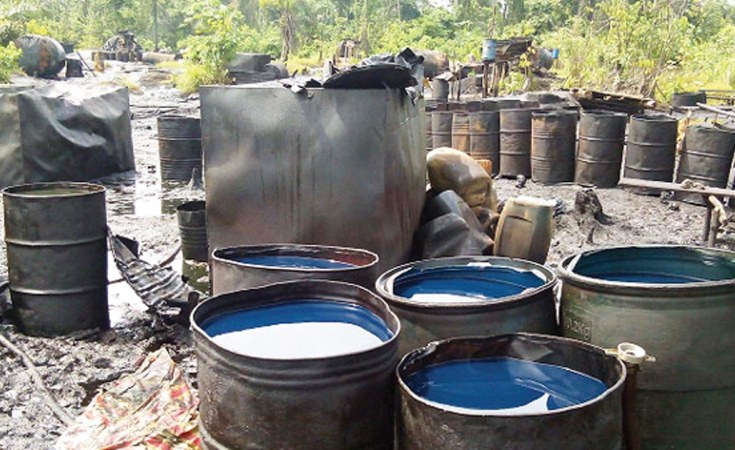The agency claimed that there is petrol sufficiency of over 1.6 billion litres as of 26 January
The Nigerian Midstream and Downstream Petroleum Regulatory Authority (NMDPRA) on Friday attributed the lingering fuel scarcity in the country to a disruption in the product distribution chain caused by activities of cross-border smugglers.
In a statement on Friday, the agency said "the current distribution hitch is heightened by activities of cross-border smugglers, who divert PMS meant for the Nigerian market to neighbouring countries where PMS prices are significantly higher than Nigeria's regulated price."
However, the agency claimed that there is petroleum motor spirit (PMS) sufficiency of over 1.6 billion litres as of 26 January both on land and marine.
It explained that the Nigerian National Petroleum Company (NNPC) Limited has additionally made a firm commitment to supply more volume of PMS for the months ahead to guarantee national energy security and nationwide availability at the government-regulated price.
It noted that the agency is engaging and collaborating with the Nigeria Customs Service to address this issue.
"The price arbitrage between Nigeria and neighbouring countries has continued to grow due to inflation and the regional impact of the Russia-Ukraine conflict on the global energy value chain including international freight rates and coastal vessels charter rates," it said.
"We wish to bring to the public knowledge that the ongoing government effort to rehabilitate strategic Nigerian roads ahead of the rainy season has necessitated the rerouting of tanker trucks conveying petroleum products to alternative roads, therefore increasing transit time and associated cost of product transportation."
It said NMDPRA and key stakeholders including NNPC have put various measures in place to address the issues.
Part of the measures include modest adjustments in the cost of product transportation to cater for the impact of high AGO prices on transporters, while making special provisions of diesel to marketers at a reduced price. Similarly, it agreed on automation of products sales interface and emplacement of a monitoring system in collaboration with government security agencies for the distribution of products to retail outlets.
It also agreed on "extended operating hours both at the loading depots and some selected filling stations" as well as "rehabilitation of critical fuel distribution road network through the federal government's tax credit scheme by the NNPC."
The agency reinforced its monitoring teams and appropriate sanctions to checkmate the activities of erring marketers who are distorting planned product flow to designated outlets in order to profiteer from price arbitrage.
As a medium to long-term measure, cost-efficient means of transportation, including autogas conversions and pipeline rehabilitation, are being implemented, it said. This, it added, will be complemented by end-to-end process automation across the value chain.
"NMDPRA appreciates the collaborative efforts of some patriotic oil marketing companies who, despite the glaring incentives to engage in illegal price arbitrage, have stood steadfast and operated responsibly within the approved pricing limits.
"We would like to reassure all Nigerians that NMDPRA as a responsible regulatory authority would continue to work passionately to ensure energy security and continuous collaboration with all the relevant stakeholders to restore normalcy in the Premium Motor Spirit supply and distribution network within the shortest possible time," it said.
Scarcity
In recent months Nigerian motorists and households users have had tough time getting petroleum products at filling stations.
The scarcity has persisted despite the government's repeated claims it had enough petroleum products in stock. In many parts of the country, operators of filling stations sold at prices higher than the government's pump price.
Last Thursday, reports claimed that the government quietly approved N185 as the new petrol pump price per litre. The government, however, denied the claim.
But the government said that it did not approve any increase in the price of PMS or any other petroleum product.
Despite the government's position, PREMIUM TIMES' found that Nigerians have continued to suffer scarcity of petroleum products across the country.
A PREMIUM TIMES report Tuesday detailed how Nigerians have continued to lament the hardship caused by the scarcity of petroleum products across the country as businesses and households that depend on generators for power supply groan in darkness


